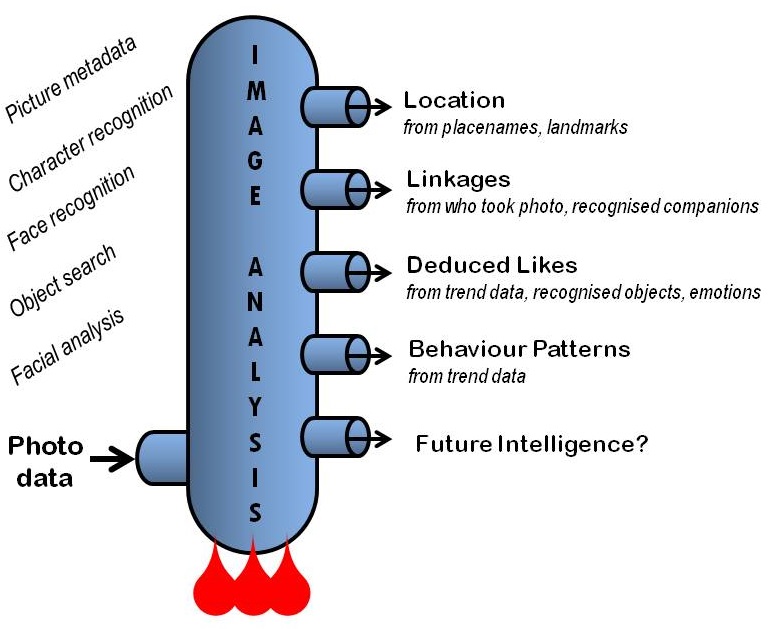Constellation Research analysts are wrapping up a very busy 2014 with a series of "State of the State" reports. For my part I've looked at the state of privacy, which I feel is entering its adolescent stage.
Here's a summary.
1. Consumers have not given up privacy - they've been tricked out of it.
The impression is easily formed that people just don't care about privacy anymore, but in fact people are increasingly frustrated with privacy invasions. They're tired of social networks mining users' personal lives; they are dismayed that video game developers can raid a phone's contact lists with impunity; they are shocked by the deviousness of Target analyzing women's shopping histories to detect pregnant customers; and they are revolted by the way magnates help themselves to operational data like Uber's passenger movements for fun or allegedly for harassment - just because they can.
2. Private sector surveillance is overshadowed by government intrusion, but is arguably just as bad.
Edward Snowden's revelations of a massive military-industrial surveillance effort were of course shocking, but they should not steal all the privacy limelight. In parallel with and well ahead of government spy programs, the big OSNs and search engine companies have been gathering breathtaking amounts of data, all in the interests of targeted advertising. These data stores have come to the attention of the FBI and CIA who must be delighted that someone else has done so much of their spying for them. These businesses boast that they know us better than we know ourselves. That's chilling. We need to break through into a post-Snowden world.
3. The U.S. is the Canary Islands of privacy.
The United States remains the only major economy without broad-based information privacy laws. There are almost no restraints on what American businesses may do with personal information they collect from their customers, or synthesize from their operations. In the rest of the world, most organizations must restrict their collection of data, limit the repurposing of data, and disclose their data handling practices in full. Individuals may want to move closer to European-style privacy protection, while many corporations prefer the freedom they have in America to hang on to any data they like while they figure out how to make money out of it. Digital companies like to call this "innovation" and grandiose claims are made about its criticality for the American economy, but many consumers would prefer the sort of innovation that respects their privacy while delivering value-for-data.
4. Privacy is more about politics than technology.
Privacy can be seen as a power play between individual rights and the interests of governments and businesses. Most of us actually want businesses to know quite a lot about us, but we expect them to respect what they know and to be restrained in how they use it. Privacy is less about what organizations do with information than what they choose not to do with it. Hence, privacy cannot be a technology issue. It is not about keeping things secret but rather, keeping them close. Privacy is actually the protection we need when things are not secret.
5. Land grab for "public" data accelerates.
Data is an immensely valuable raw material. We should re-frame unstructured data as "information ore". More than data mining, Big Data is really about data refining but unlike the stuff of traditional extractive industries, data seems inexhaustible, and the cost of extraction is near zero.

A huge amount of Big Data activity is propelled by the misconception that data in the public domain is free for all. The reality is that many data protection laws govern the collection and use of personal data regardless of where it comes from. That is, personal data in the "public domain" is in fact encumbered. This is counter-intuitive to many, yet many public resources are regulated - including minerals, electromagnetic spectrum and intellectual property.
6. Data literacy will be key to digital safety.
Computer literacy is one thing, but data literacy is different and less tangible. We have strong privacy intuitions that have evolved over centuries but in cyberspace we lose our bearings. We don't have the familiar social cues when we go online, so now we need to develop new ones. And we need to build up a common understanding of how data flows in the digital economy. Today we train kids in financial literacy to engender a first-hand sense of how commerce works; data literacy may become even more important as a life skill. It's more than being able to work an operating system, a device and umpteen apps. It means having meaningful mental models of what goes on in computers. Without understanding this, we can't construct effective privacy policies or privacy labeling.
7. Privacy will get worse before it gets better.
Privacy is messy, even where data protection rules are well entrenched. Consider the controversial Right To Be Forgotten in Europe, which requires search engine operators to provide a mechanism for individuals to request removal of old, inaccurate and harmful reports from results. The new rule has been derived from existing privacy principles, which treat the results of search algorithms as a form of synthesis rather than a purely objective account of history, and therefore hold the search companies partly responsible for the offense their processes might produce. Yet, there are plenty of unintended consequences, and collisions with other jurisprudence. The sometimes urgent development of new protections for old civil rights is never plain sailing.
My report "Privacy Enters Adolescence" can be downloaded here. It expands on the points above, and sets out recommendations for improving awareness of how Personal Data flows in the digital economy, negotiating better deals in the data-for-value bargain, the conduct of Privacy Impact Assessments, and developing a "Privacy Bill of Rights".



